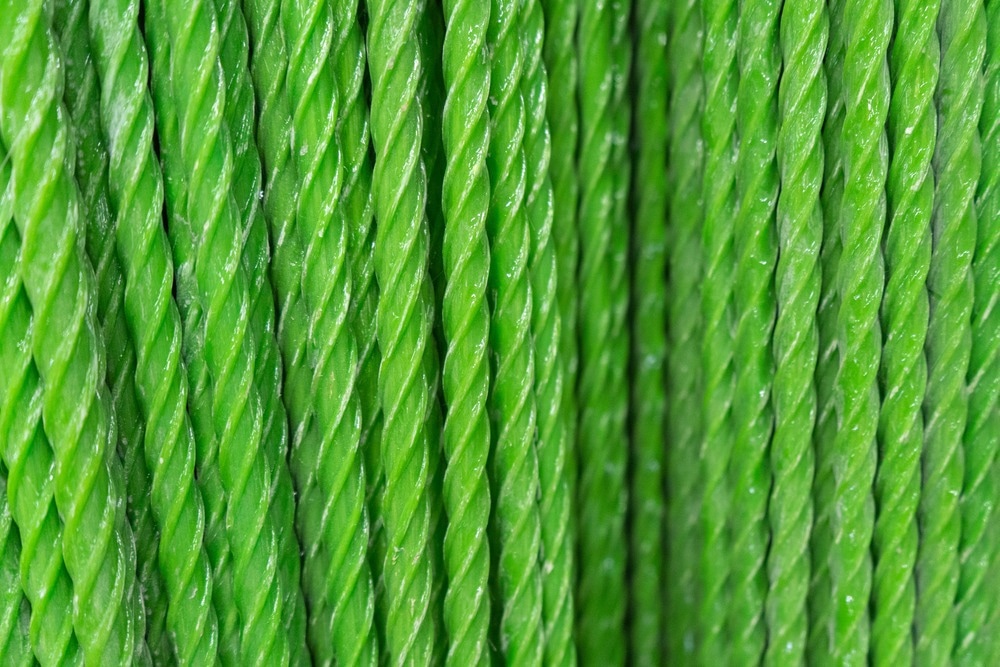Sustainability is at the heart of several current governmental policies and projects worldwide. This is crucial if the world is to avoid the worst predicted effects of climate change. This article will explore the Multi-level Circular Process Chain for Carbon and Glass Fibre Composites (MC4,) a new EU project.

Image Credit: Larisa Rudenko/Shutterstock.com
What Does the Project Aim to Achieve?
The exploitation of natural resources is a key driver of technological progress, making the world we live in possible. However, these resources are finite and cannot be replaced once used up.
In addition to the loss of virgin resources, the manufacturing processes needed to produce commercial products use vast amounts of energy and water, producing climate change-inducing emissions and potentially contaminating water supplies.
Recycling and reusing commercial products in a circular manner is vastly preferable to the current linear model of production, but not all materials can be recycled properly. Glass, for example, is incredibly easy to recycle, with systems in place for decades, whereas certain plastic and composite materials are more problematic.
Fiber-reinforced composites are one of the least recycled materials globally. Currently, only 2% of glass fiber and carbon fiber-reinforced composites are recycled. To put this into perspective, around 4.5 million tons of glass fiber and 110,000 tons of carbon fiber-reinforced composites are recycled worldwide.
The production of these materials is incredibly wasteful too; it is estimated that processes waste around 40% of glass fibers, which could otherwise be used to create new products.
MC4 is a new project that aims to explore the possibility of moving the manufacture of these composites away from a linear model toward a circular one, thereby reducing resource loss and energy consumption.
The economic and technical feasibility of new technologies and approaches will be explored in-depth by the project. This should help to point the way toward new recycling technologies for fiber-reinforced composite materials and benefit multiple industries which use them in everyday products.
Improving Sustainable Supply Chains in Europe
In addition to reducing waste and energy consumption, the competitiveness of EU markets for fiber-reinforced composites needs to be improved as well.
Currently, Europe relies on foreign markets, which can be problematic if geopolitical factors are taken into account. Indeed, the influence of challenges such as COVID-19 and wars such as Ukraine on global supply chains has been well-publicized over the last couple of years.
It is apparent that the EU needs to strengthen its supply chains to become more resilient to global factors and challenges. The MC4 project aims to also support and improve sustainable supply chains in the continent.
All necessary steps in the supply chain from initial production to reuse need to be involved if a truly sustainable supply of these materials in Europe is possible. To achieve this, sixteen European partners are involved in the project from 9 nations.
To improve Europe’s resilience, the project aims to:
- Create stronger supply chains
- Reduce dependence on foreign materials and supply chains
- Establish coherent circular economy loops.
Two of MC4’s Projects
Amongst the various projects being developed, two stand out in the literature provided by the teams behind MC4.
The first project concentrates on chemical matrix/fiber separation as a basis for recycling carbon fiber. The second project aims to develop a new resin for direct reuse of glass fiber composites. These technologies, along with other potential processes, could produce recycling rates of around 60%.
What Stage is the Project at?
In September 2023, partners in the project met at CIDETEC in Spain to discuss current progress. MC4 has made good headway so far, with research on four processes already showing positive results. The next step is to demonstrate the processes explored in the project.
Once this has been achieved, the first half of MC4 will be complete, and the project can move onto its next phase: producing real-world demonstrator projects (amongst other aims.) MC4 has been presented in Austria at the Dornbirn Global Fiber Congress and has been featured in Textil Plus, a German textile industry magazine.
MC4 is funded by the European Union.
Implications for the Future
MC4 is a bold plan that, if implemented properly, could have huge implications for the future of sustainability in the EU. Fiber-based composites are incredibly difficult-to-recycle materials which typically end up in landfill. And with more products using them, the problem is only increasing.
By exploring the technical and economic feasibility of new circular technologies, the project could go a long way toward building a greener future not just in the EU but beyond. Additionally, by improving the resilience of EU markets for these products, MC4 could help Europe mitigate any geopolitical challenges in relation to their supply.
More from AZoM: How are Bioplastics Made?
References and Further Reading
MC4 Project [online] Available at:
https://www.mc4-project.eu/?page_id=2
Oddon, R (2023) MC4 Project: Improving the EU capacity to process and recycle composite materials [online] Open Access Government. Available at:
https://www.openaccessgovernment.org/article/mc4-project-improving-the-eu-capacity-to-process-and-recycle-composite-materials/168657/
Disclaimer: The views expressed here are those of the author expressed in their private capacity and do not necessarily represent the views of AZoM.com Limited T/A AZoNetwork the owner and operator of this website. This disclaimer forms part of the Terms and conditions of use of this website.